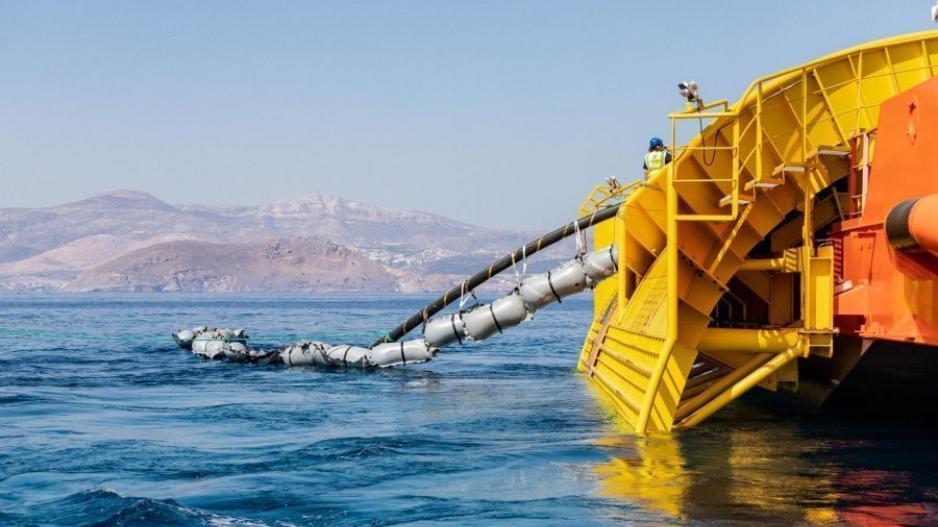IPTO and Meridiam Sign MoU for Great Interconnector Project
Meridiam Is a Global Investor and Asset Manager With $22 Billion in Assets, Headquartered in Paris and Operating in 56 Countries
IPTO (Independent Power Transmission Operator) and Meridiam have signed a Memorandum of Understanding (MoU) regarding Meridiam's entry into the shareholder structure of Great Sea Interconnector, the company responsible for implementing the Greece-Cyprus-Israel electricity interconnection project.
According to IPTO's announcement today, Meridiam is a global investor and asset manager with $22 billion in assets, headquartered in Paris and operating in 56 countries. Meridiam specializes in developing, financing, and managing long-term public infrastructure projects with a focus on maximizing benefits for the economy, the environment, and society. Additionally, Meridiam is the primary investor in NeuConnect, the first electrical interconnection between the United Kingdom and Germany, which is already under construction.
IPTO continues discussions with interested investors for equity participation in the project. It has already agreed with the United States Development Finance Corporation (DFC) to send the proposed financing terms (term sheet) for the project, following the recent Letter of Intent (LoI) sent to the implementing entity. Simultaneously, IPTO is in negotiations with Greek commercial banks and the Bank of Cyprus to participate in the project's financing.
The Greece-Cyprus-Israel electrical interconnection project is one of the largest electrical interconnection projects worldwide, pioneering cable laying at depths of up to 3,000 meters and using innovative High Voltage Direct Current converter station technology.
The project paves the way for Cyprus to enter the unified electricity market, resulting in the convergence of the island's energy prices with those of the rest of Europe, benefiting consumers and businesses. The interconnection is expected to bring a net social benefit of €6 billion, thanks to savings from fuel substitution, reduced pollutant gas emissions, etc., an amount that significantly exceeds the project's construction cost.
This means that the interconnection will have more than double the benefit-to-cost ratio for society, a fact already acknowledged by the European Commission with its €657 million funding contribution to the project, the announcement concludes.






